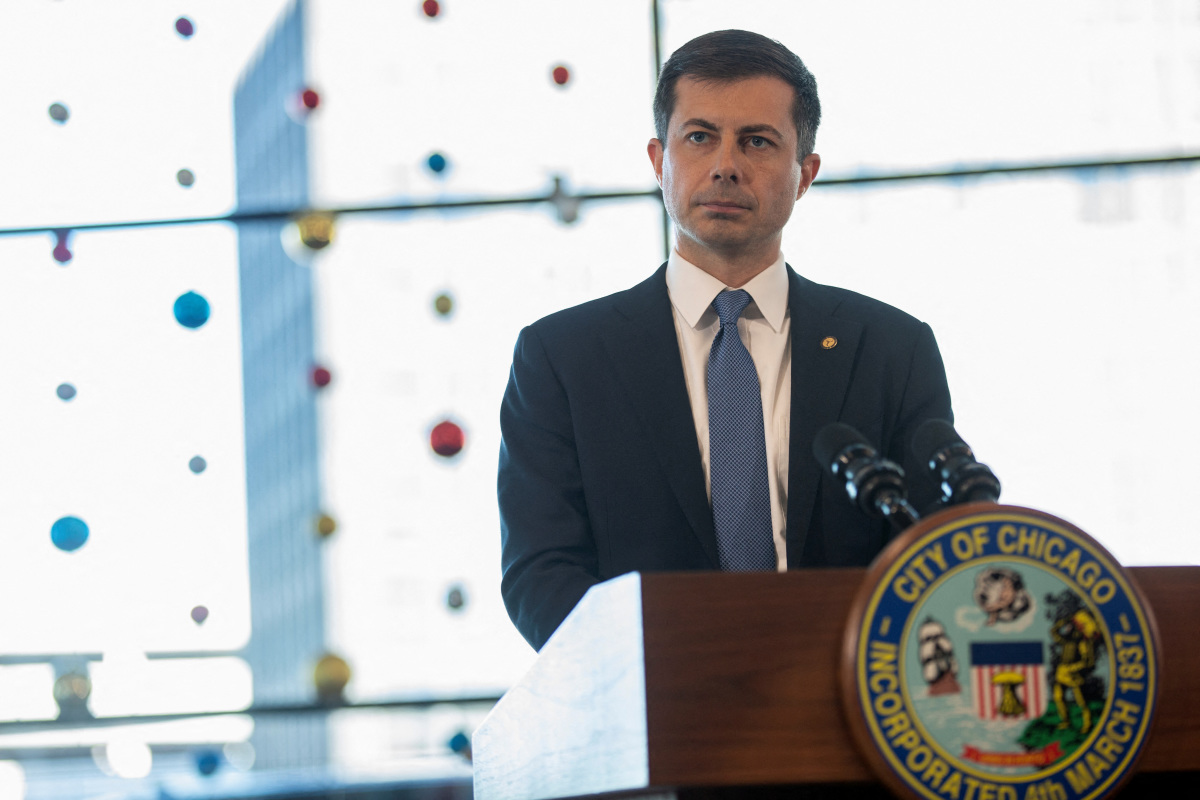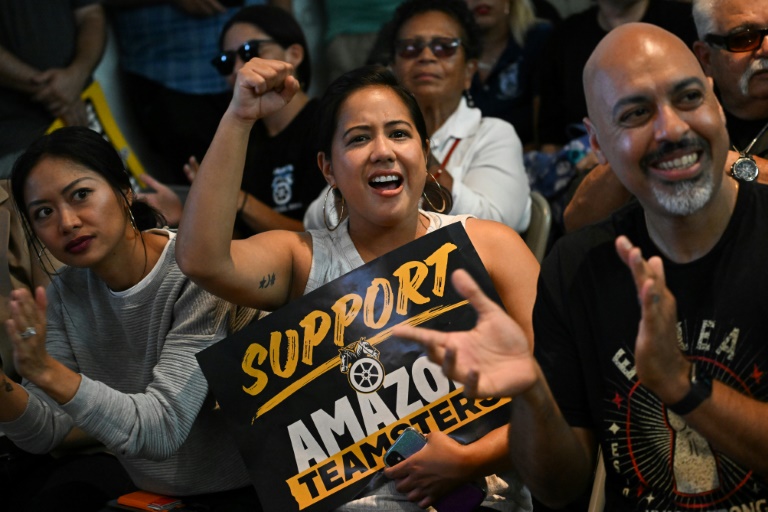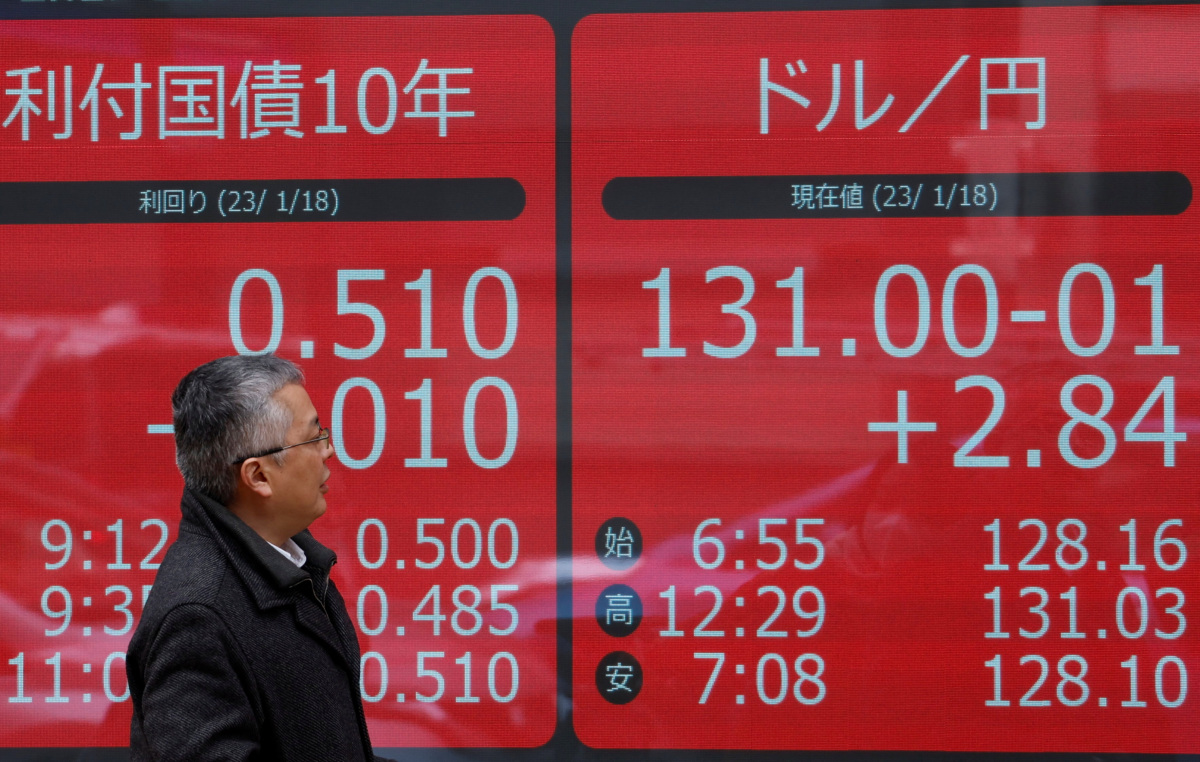Reuters
U.S. Transportation Secretary Pete Buttigieg said Sunday he would call on major railroads to improve safety after a Feb. 3 derailment in East Palestine, Ohio, of a train operated by Norfolk Southern.
Buttigieg in a letter to Norfolk Southern Chief Executive Alan Shaw said he would also urge Congress to raise the cap on fines against railroads for violating safety regulations “to ensure their deterrent effect is commensurate with the economic proportions of today’s large railroad companies.”
Buttigieg said he would soon outline specific safety improvements railroads should take immediately. He harshly criticized them for lobbying against steps “intended to improve rail safety and to help keep Americans safe.”
“Major derailments in the past have been followed by calls for reform – and by vigorous resistance by your industry to increased safety measures. This must change,” Buttigieg wrote.
Buttigieg has faced harsh criticism from many Republicans in Congress for his response to the derailment of the train loaded with toxic chemicals that caused a fire and sent a cloud of smoke over the town that forced thousands of residents to evacuate while railroad crews drained and burned off chemicals.
No fatalities or injuries have been reported, but residents have been demanding answers about potential health risks.
Norfolk Southern did not immediately respond to a request for comment Sunday, but Shaw said last week the railroad had established an initial $1 million community support fund and distributed $1.7 million in direct financial assistance to more than 1,100 families and businesses to cover evacuation costs.
“We will not let you down,” he told residents in a letter.
Buttigieg’s letter said that in response to many derailments, two U.S. agencies had finalized rules on high-hazard flammable trains and Electronically Controlled Pneumatic (ECP) braking.
“Rather than support these efforts to improve rail safety, Norfolk Southern and other rail companies spent millions of dollars in the courts and lobbying members of Congress to oppose
common-sense safety regulations, stopping some entirely and reducing the scope of others,” Buttigieg wrote.
“As a result, Congress enacted language that undermined the ability of USDOT to sustain the ECP brake requirements, and they were ultimately withdrawn under the Trump administration.”
Buttigieg said he also planned to outline “prioritized actions planned” by the U.S. Department of Transportation on rail safety.
In response to the derailment, U.S. Senate Commerce Committee Chair Maria Cantwell Friday opened an inquiry into railroad hazardous materials safety practices.
The Senate Environment and Public Works Committee said Friday it planned to hold a hearing on the derailment.
In a letter to Shaw and CEOs of major railroad companies, Cantwell said “every railroad must reexamine its hazardous materials safety practices to better protect its employees, the environment, and American families and reaffirm safety as a top priority.”
The companies included Berkshire Hathaway’s Burlington Northern Santa Fe (BNSF), Canadian National, Canadian Pacific, CSX, Kansas City Southern and Union Pacific.
A group representing major railroads said last week 99.9% of all hazmat shipments reach their destination without incident and the hazmat accident rate has declined by 55% since 2012.







